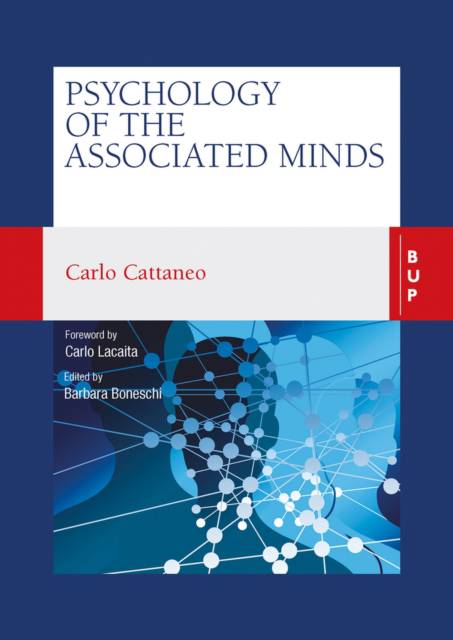
- Afhalen na 1 uur in een winkel met voorraad
- Gratis thuislevering in België vanaf € 30
- Ruim aanbod met 7 miljoen producten
- Afhalen na 1 uur in een winkel met voorraad
- Gratis thuislevering in België vanaf € 30
- Ruim aanbod met 7 miljoen producten
Zoeken
Psychology of the Associated Minds
Lectures at the Lombard Institute of Sciences, Letters and Arts
Carlo Cattaneo
Paperback | Engels
€ 55,95
+ 111 punten
Omschrijving
The Lectures of the Psychology of the Associated Minds represent a crucial step in the long maturation of Cattaneo's thought, an attempt to systematize the philosophical ideas that he had developed in various different writings and in his teaching since 1852 in the high school of Lugano, where he lived in exile after 1848. The book represents a change of paradigm from the perspective of the individual to that of the associated man who in the course of history builds collective ways of thinking and acting- languages, religions, organizations, social systems- and in so doing transforms both nature and society. Key ideas in the book are the key role played by the "federalism of the intelligences," science as the source of human progress, freedom as a requisite of scientific progress, the better performance of open social systems, the dynamic and constructive role of the antithesis, the importance of socio-cultural systems. Cattaneo argues that thought, even more than sensation, is a social fact, "since it often unites in a single idea many people unknown to each other and many generations." It is therefore necessary to inquire the many ways in which "the associated minds in families, classes, peoples, the human species, can cooperate to the common knowledge and debate in a fruitful dynamic contrast of different theories." The last lectures are on the analysis, "one of the greatest moral and material interests of humanity," and on the freedom of inquiry that must be safeguarded at all cost.
Specificaties
Betrokkenen
- Auteur(s):
- Uitgeverij:
Inhoud
- Aantal bladzijden:
- 178
- Taal:
- Engels
Eigenschappen
- Productcode (EAN):
- 9788885486881
- Verschijningsdatum:
- 1/10/2019
- Uitvoering:
- Paperback
- Formaat:
- Trade paperback (VS)
- Afmetingen:
- 173 mm x 241 mm
- Gewicht:
- 272 g

Alleen bij Standaard Boekhandel
+ 111 punten op je klantenkaart van Standaard Boekhandel
Beoordelingen
We publiceren alleen reviews die voldoen aan de voorwaarden voor reviews. Bekijk onze voorwaarden voor reviews.








